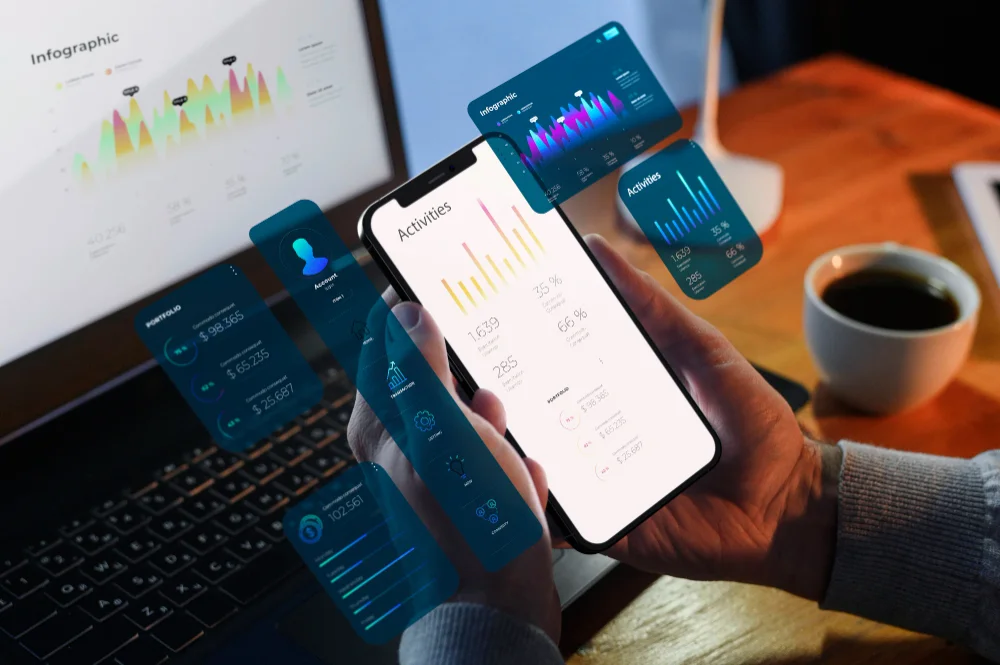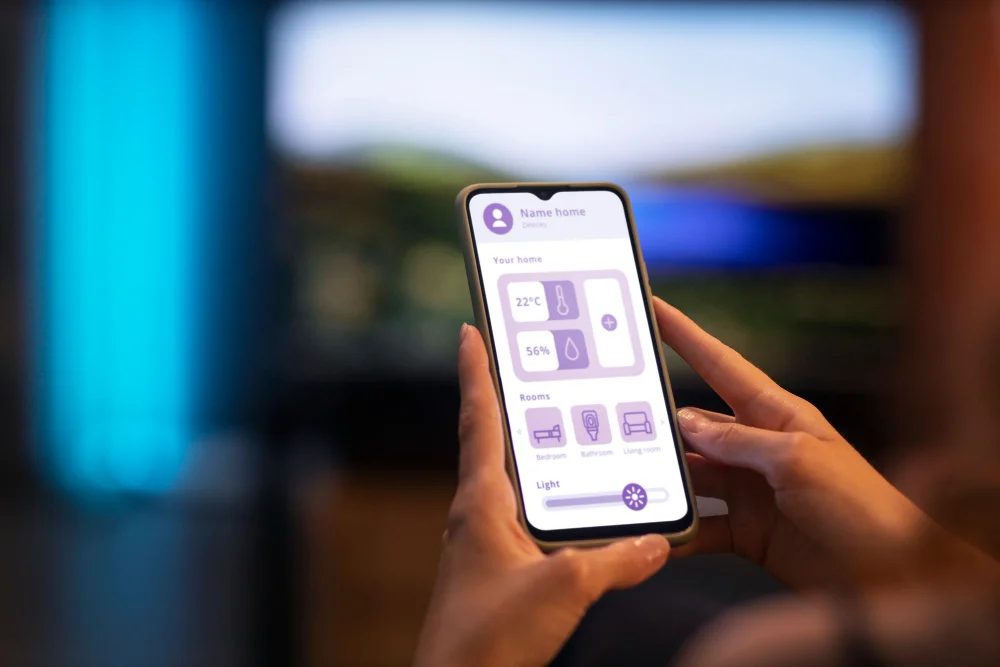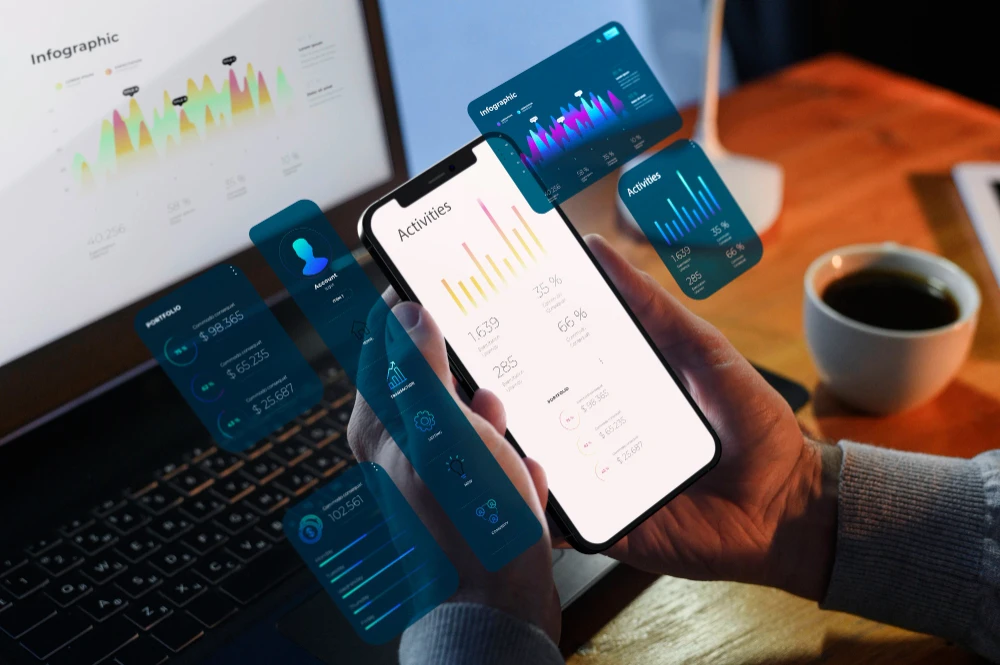Share Posts

Top 10 Best Frameworks for Android App Development in 2025
46
2423
103
The Android app development frameworks are pivotal in building the perfect Android applications. The Android app framework is a comprehensive library that includes the tools, key components, and other resources that structure the Android apps. They accelerate and simplify the app development process with pre-built templates and components. Choosing the right framework for Android apps determines the performance, usability, and scalability of the applications. Struggling to select the best Android framework? Discover the curated list of the best Android app frameworks that will ease your Android app development process and drive success and efficiency.
Best Frameworks for Android App Development
React Native
React Native is the popular open-source cross-platform framework developed by Facebook. React Native is a javascript library used to develop native applications for Android and iOS. It is highly preferred by developers as it aids in minimizing the development time and cost. The popularity of react native is owing to the code reusability, native-like experiences, enriched UI, etc. It is used by many companies right from Fortune 500 to new startups and top companies using react native including Walmart, Instagram, and Skype.
Key Reasons to Choose React Native
> Fast development
> Live reloading
> Code reusability
> Third-party plugin support
Flutter
Flutter is the open-source UI software development kit powered by Google. It is used to develop top-quality and visually appealing Android applications from a single code base. Flutter is written using the Dart programming language which is also developed by Google. Flutter focuses on widget-based development rendering widgets on a per-pixel basis and aids in developing complex UI. It is now supported to create multi-platform applications and comes with developer-friendly tools like Hot Reload.
Key Reasons to Choose Flutter
> Widget-based development
> Hot Reload
> Cross-platform compatibility
> Code reusability
> Appealing UI
NativeScript
NativeScript is the open-source mobile app development framework that enables the development of native Android and iOS applications using Javascript, Typescript, and Angular. It comes with direct access to native APIs. The latest feature introduced in NativeScript is the hot module replacement that facilitates the removal of modules while the application is running. It is efficient for app development and helps developers create complex applications with the best backend support.
Key Reasons to Choose NativeScript
> Cross-platform compatibility
> Hot module replacement
> Direct access to native APIs
Apache Cordova
Apache Cordova is an open-source hybrid mobile app framework used to create Android applications leveraging technologies such as HTML5, CSS3, and JavaScript. It was originally launched as PhoneGap and later rebranded as Apache Cordova, the open-source version. Cordova can be extended to native plugins.
Key Reasons to Choose Apache Cordova
> Multiplatform app development
> Native plugins
Ionic
Ionic is the leading cross-platform app development framework that simplifies the creation of apps for Android and IOS from a single code base. It helps in creating Android apps utilizing the web technologies such as HTML, CSS, and JavaScript. Ionic is well-known for creating progressing web apps (PWAs). It is built to be fast concentrating on hardware-accelerated transitions and touch-optimized gestures. It claims to create a flexible, beautiful, and simple UI across various platforms. It is maintained by a core team consisting of an international community of developers.
Key Reasons to Choose Ionic
> Cross-platform compatibility
> Native and web-optimized
> Progressive web app support
> Better performance
Sencha Ext JS
Sencha Ext JS is a javascript framework used to build cross-platform web and mobile applications. With the high-performance UI components of Sencha, rich and data-intensive applications can be developed. The modern tool kit Ext JS provides HTML5 support for all modern browsers. It is an enterprise-ready framework with an extensive component library of over 140+ pre-developed components. With over 17 years in the market, Sencha Ext JS prioritizes crafting high-performance applications to deliver unparalleled user experience.
Key Reasons to Choose Sencha Ext JS
> Rapid development
> 140+ pre-built components
> Development of data-intensive applications
Android Jetpack
Android Jetpack is a comprehensive suite of libraries, components, tools, and guidance that is used to develop flexible Android apps. Jetpack is used by most of the apps present in the Google Play store. The jetpack encompasses jetpack compose which is used to create native UI for Android applications. Jetpack is known for eliminating boilerplate code and alleviating complex activities and tasks. It offers backward compatibility and follows best practices for developing Android apps.
Key Reasons to Choose Android Jetpack
> Reduce fragmentation
> Minimize boilerplate code
> Backward compatibility
Framework7
Framework7 is the best Android app framework in 2024 to build hybrid mobile apps with Android and iOS native looks. It is an open-source framework that allows developers to create progressive web apps (PWA) leveraging HTML, CSS, and Javascript. It comes with various UI components and widgets such as dialogs, popups, layout grids, side panels, etc to create visually mobile applications. Framework7 supports third-party solutions.
Key Reasons to Choose Framework7
> Free and open-source
> Best prototyping tool
> Extensive UI components
Titanium SDK
Titanium SDK is one of the ideal frameworks for creating native Android apps using JavaScript. It is an open-source framework that aids in the development of native mobile apps on Android and iOS. It was initially developed by Appcelerator and later by Azway. It comes with third-party modules and premium support integrations. It helps in creating rich Android applications and ensures 80% code reuse. It is known for its cross-platform API for accessing native UI components and model-view-controller (MVC) based framework alloy.
Key Reasons to Choose Titanium SDK
> Cross-platform API
> MVC-based framework alloy
> 80% code reusability
Kotlin Multiplatform
Kotlin multiplatform is an Android app framework designed by JetBrains that allows the sharing of Kotlin code across various platforms. It helps in creating multiplatform applications by sharing the data access layer between Android and iOS. Kotlin multiplatform helps in creating native performance using platform-specific APIs. It also comes with the ability to create mobile applications across multiple platforms.
Key Reasons to Choose Kotlin Multiplatform
> Sharing code
> Cross-platform compatibility
> Native performance
Conclusion
The app development frameworks are indispensable in creating mobile applications. They help businesses in creating applications that outperform their competitors by boosting scalability, efficiency, and compatibility. The above listed are some of the best Android app frameworks that empower the creation of high-performance Android applications. If you are still struggling to choose the appropriate framework then connect with Maticz, the leading Android app development company that guides you in creating high-quality Android apps leveraging the best-suited Android app framework. Maticz houses a team of equipped app developers who develop Android apps integrating the right tech stack and framework according to the scope and objective of the clients.
Tap Into the Future
The latest insights, posts, and project updates - straight to your inbox.




